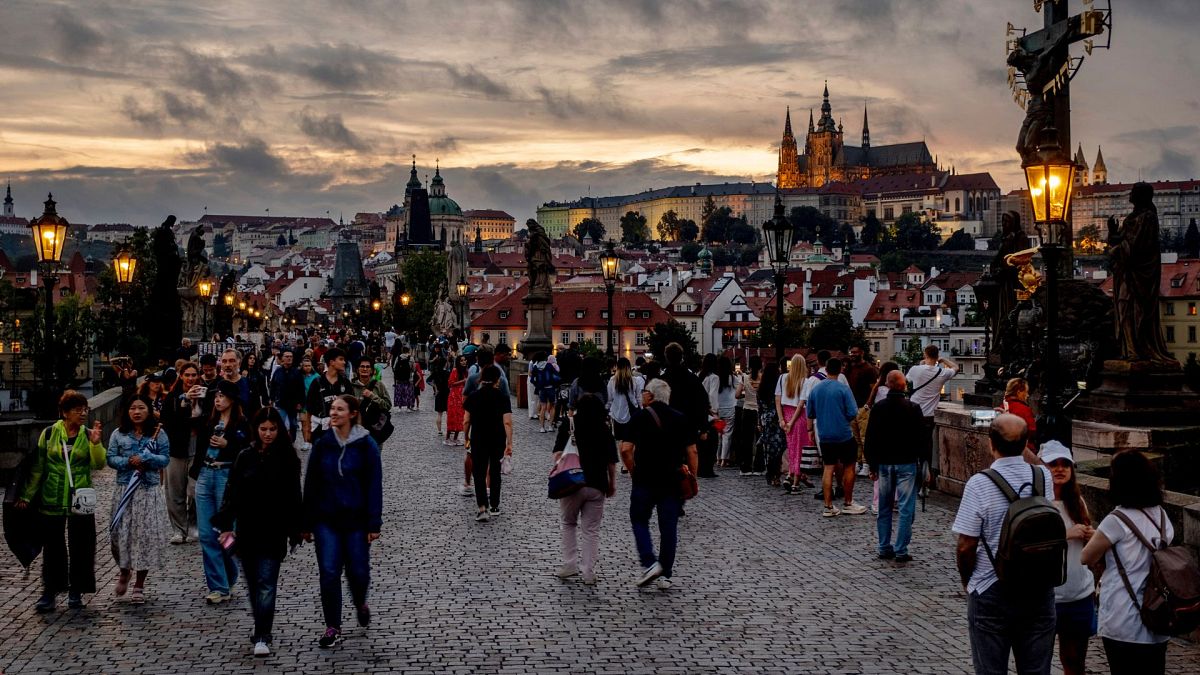Bar crawls banned in Europe’s party capital

This city is targeting rowdy tourists with a bar crawl ban, costume crackdowns and Airbnb restrictions.
Prague is banning organised bar crawls in its ongoing mission to crack down on rowdy tourists.
The Czech capital will no longer allow guided bar-hopping to take place between 10pm and 6am, local officials announced on Monday.
The move is likely to be a major blow to tour operators who rely on Prague’s reputation as a party city, including one that claimed to offer ‘Europe’s biggest pub crawl’.
It is hoped the ban will reduce nighttime disturbance, contribute to cleaner streets and improve the city’s reputation among locals, tourists and investors, Czech news agency České Noviny reports.
The news comes just weeks after the Czech government announced plans to clamp down on short-term holiday rentals to curb high rent prices and housing shortages in tourist hotspots.
Czechia’s tourist crackdown extends to Airbnb-style rentals
Following the lead of cities like London, Dublin, Amsterdam and Paris, Czechia is restricting Airbnb-style rentals.
A draft bill approved by the Czech government in August would allow municipalities and cities to limit the amount of Airbnb-style accommodation available.
It is hoped the move will bring down real estate prices and ensure residents are not forced out by tourists in popular cities like Prague.
This could include capping the number of days a property can be rented out per year, as well as defining a minimum amount of space required per guest.
It would also place stricter regulations and relevant local taxes on guesthouses, Airbnbs and other holiday rentals, bringing their obligations in line with traditional hotels.
Property owners would be required to register accommodation and guest details via a new platform called eTurista. A registration number for the property will be provided, which must be displayed on accommodation listings.
If approved, it is hoped the new system will help to increase oversight of short-term rentals, many of which currently operate in a grey area.
Currently, officials estimate that between 40 to 70 per cent of stays via online platforms are not reported, which could lead to almost €32 million in lost taxes annually.
The new rules could come into force in July 2025.
How else is Prague cracking down on tourists?
As well as keeping tabs on rental accommodation, the new rules intend to limit the number of tourist apartments in city centres – reducing noise disturbance in the process.
In Prague in particular, rowdy tourists are driving locals out of the capital’s historic Old Town. The Airbnb crackdown has therefore been welcomed by district councillors.
It won’t be their first attempt to rein in noisy visitors. Earlier this year, one district council proposed a ban on outlandish costumes worn by stag and hen parties, which it said encourage drunk and rowdy behaviour in Prague’s popular nightlife district.
Some councillors suggested that “socially unacceptable” attire was contributing to nighttime noise and unruliness, particularly on organised pub crawls.
A previous plea by the city district to limit business opening hours in the city centre was rejected last year.
However, a ban on cars entering part of the Old Town at night was approved in July to reduce noise in the area. It prevents vehicles from entering the historic district between 10pm and 6am.
Video editor • Emma De Ruiter
Related
Brits forced to pay fee to visit these 30 countries…
UK tourists will be required to pay a fee to visit 30 countries in Europe under new European Union (EU) travel rules.The rules mean British holidaymakers will n
The beautiful European island with just 148 locals
Irakleia is a beautiful island in the Minor Cyclades of Greece, nestled in the heart of the Aegean Sea and just an hour away from Naxos. Officially recorded t
Warning issued for Brits flying easyJet and Ryanair to popular…
Passengers flying with Ryanair, easyJet and British Airways should expect disruption (Picture: Urbanandsport/NurPhoto via Getty Images) Passenge










